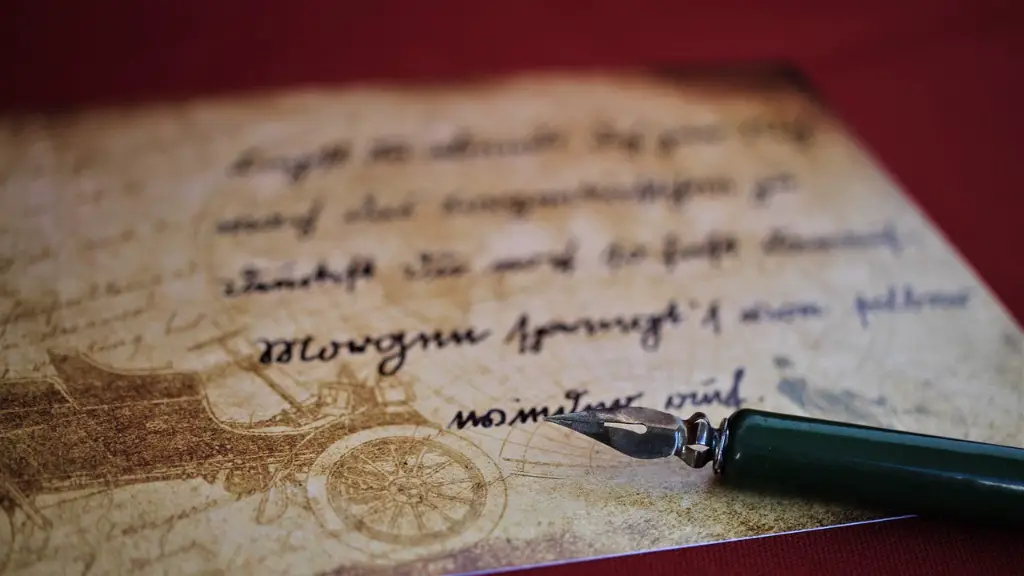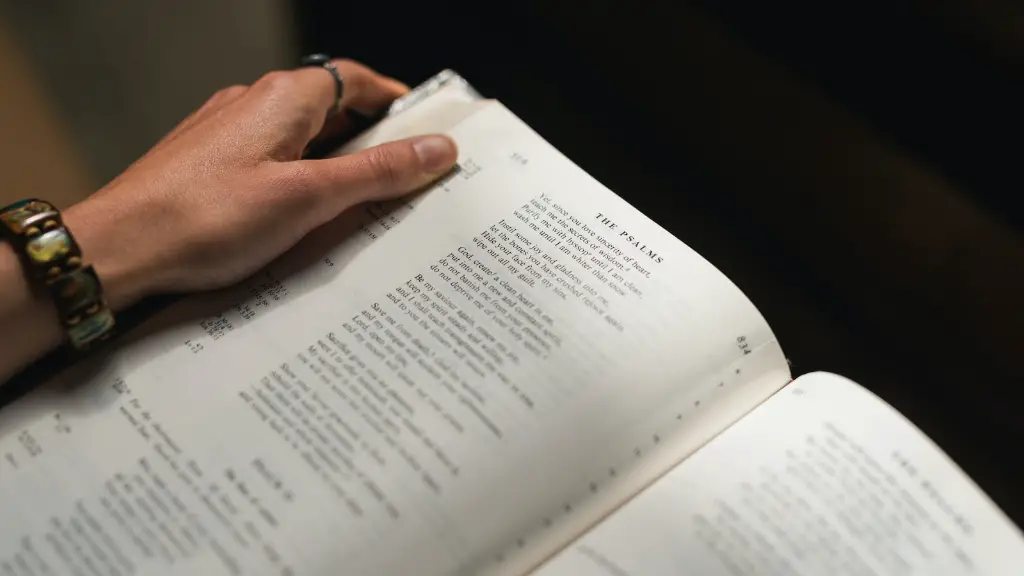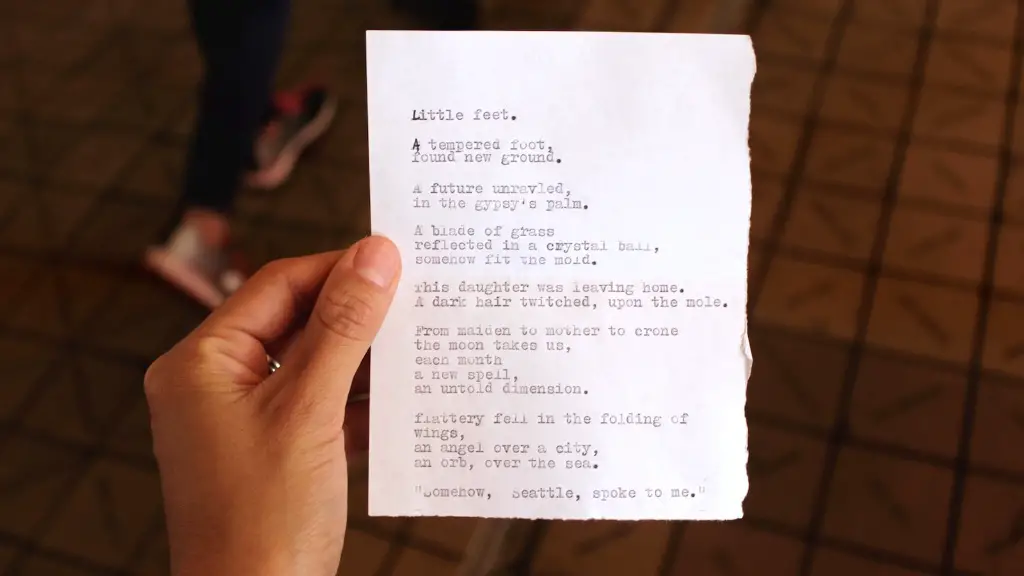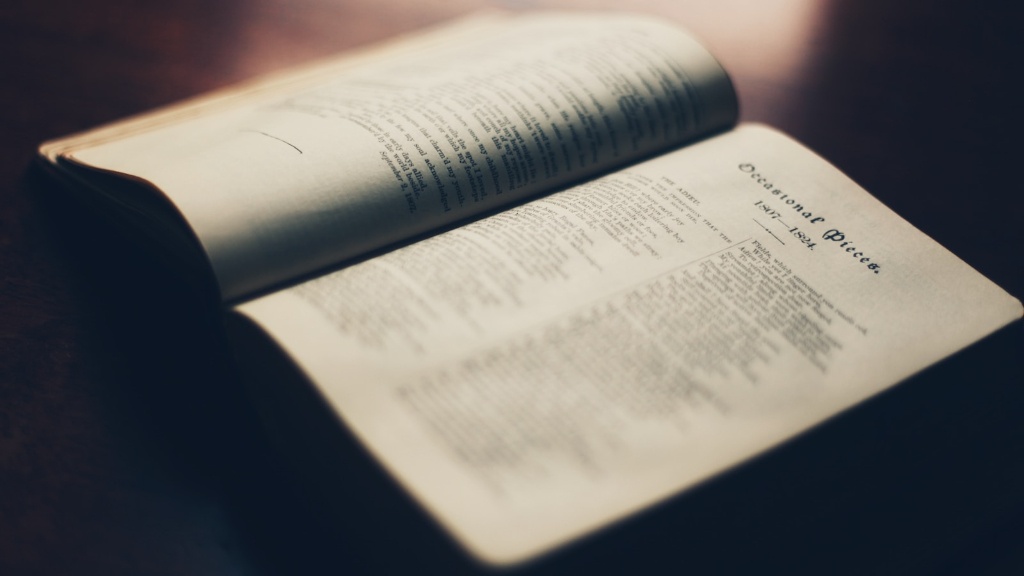There are many possible reasons why Emily Dickinson may have been inspired to write poetry. Perhaps she was moved by the natural world around her, or by the emotions she was feeling at a particular moment. It is also possible that she was inspired by other poets, or by the act of reading poetry itself. Whatever the reason, Emily Dickinson’s poetry is characterized by its deep insight and feeling, and its ability to capture the essence of a moment or experience.
It’s impossible to know for sure what inspired Dickinson to write poetry, as she was a very private person and didn’t share her thoughts on the matter with anyone. However, it’s likely that her deep interest in nature, her feelings of isolation, and her experience of loss played a role in her decision to express herself through poetry. Additionally, Dickinson was likely influenced by the work of other poets, such as Ralph Waldo Emerson and Henry David Thoreau.
What was Emily Dickinson’s reason for writing?
Some scholars believe that Emily Dickinson may have been driven to her creative output during a time of serious and troubled romantic attachment. In a letter, Dickinson described a trauma that she experienced during this time, saying “I had a terror – since September – I could tell to none.” It is possible that this event was related to her romantic attachment, and that it caused her to turn to her writing as a way to cope with her feelings.
Dickinson was an avid reader, and she was particularly drawn to Shakespeare and Emerson. She belonged to a reading group that met regularly to read Shakespeare aloud, and she was introduced to Emerson’s work by her mentor Benjamin Franklin Newton. She was fascinated by both authors and their ability to communicate complex ideas in a beautiful and accessible way.
What is the purpose of Emily Dickinson poems
Like most writers, Emily Dickinson wrote about what she knew and about what intrigued her. A keen observer, she used images from nature, religion, law, music, commerce, medicine, fashion, and domestic activities to probe universal themes: the wonders of nature, the identity of the self, death and immortality, and love.
Emily Dickinson was an enigmatic and brilliant poet who was ahead of her time. Her bold, original verse is characterized by its epigrammatic compression, haunting personal voice, and enigmatic brilliance. She was a master of language, and her poems continue to resonate with readers today.
What made Emily Dickinson’s life unique?
There is evidence that suggests that Dickinson led a very isolated life. She was considered an eccentric by those who lived around her and she was known for her preference for white clothing. Later in life, she became even more reclusive and rarely left her bedroom.
Emily Dickinson Facts:
-Her father was a United States Senator
-Only ten of her poems were published during her lifetime
-The Dickinson family were devout Calvinists
-Botany was a passion in her early years
-She was incredibly reclusive
-Several mysterious love affairs may have taken place
What is the main themes of Emily Dickinson’s poems?
Though Dickinson is often thought of as a very unique poet, it is important to remember that she was writing during a time when many of the same themes were popular. Her peers would have been writing about love, death, religion, and war, so it is not surprising that she addressed these topics as well. What makes Dickinson stand out is her unconventional approach to these topics. She often used humor and wit to explore the darker aspects of life, which was likely a reflection of her own personality.
Clearly, Emily Dickinson wanted to believe in God and immortality, and she often thought that life and the universe would make little sense without them. Possibly her faith increased in her middle and later years; certainly one can cite certain poems, including “Those not live yet,” as signs of an inner conversion.
What are the most significant features of Emily Dickinson’s poems
Emily Dickinson is one of the most renowned poets in American history. Her poetry is known for its unconventionality, varied moods, shortness, and conciseness. Most of her poems are untitled, and she is known for her individualistic and transcendentalist views. Her opinions are unbiased, and her mysticism and spiritualism are evident in her work.
Emily Dickinson lived in an age in which people were struggling to reconcile traditional Christian beliefs with newly emerging scientific concepts. The most influential of these concepts was Darwinism. Dickinson’s struggles with faith and doubt reflect her society’s diverse perceptions of God, nature, and humankind.
What is Emily Dickinson’s most famous quote?
Hope is the thing with feathers that perches in the soul – and sings the tunes without the words – and never stops at all. It is the light that guides us through the darkness, the voice that gives us strength when we are weak, and the love that never fails. Hope is the thing that gives us the courage to face each day, knowing that no matter what the future holds, we will always have each other.
Emily Dickinson was an American poet who died of Bright’s disease in 1886. In her final days, she was only able to write brief notes to her niece. Dickinson’s final message contained the words, “I must go in, the fog is rising.”
What personality type was Emily Dickinson
Emily is a very introspective person who likes to be alone or in small groups. She is usually very idealistic and adaptable, and she generally enjoys listening to and contemplating different ideas and perspectives. Emily is a true INFP!
Dickinson’s use of symbols is very effective in establishing the cycle of life. The child represents innocence and the field of grain represents the abundance of life. The sunset represents the end of life and the inevitability of death.
Was Emily Dickinson morbid?
Dickinson’s focus on death may have been misinterpreted as morbidity, when in fact she was simply exploring the concept of death from various angles. Her poetry offers a unique and thought-provoking perspective on death, which has resonated with readers for generations.
A bobby dazzler is a particularly excellent item. It’s a great expression to use when you’re talking about something that’s just so amazing, you can’t help but be impressed.
What are two memorable poetic lines written by Dickinson
These are three of my favorite quotes about life. I think they capture the essence of what it means to live a good life. The first quote is from Emily Dickinson and it reminds us that the most important thing we can do in life is to help others. The second quote is from Ralph Waldo Emerson and it reminds us that life is made up of the present moment and that we should savor every moment. The third quote is from William Blake and it reminds us that the things that make life sweet are the things that we will never have again.
“May the Force be with you” is one of the most famous movie quotes of all time. It’s from the 1977 movie Star Wars and has become an iconic phrase. “There’s no place like home” is another famous movie quote. It’s from the 1939 movie The Wizard of Oz and is a timeless message about the importance of home. “I’m the king of the world!” is a famous quote from the movie Titanic. It’s a popular movie quote because it’s an uplifting message about taking risks and seizing the day. “Elementary, my dear Watson” is a classic quote from the Sherlock Holmes movies. It’s a clever way to say that something is obvious. “It’s alive!” is a famous quote from the movie Frankenstein. It’s a chilling quote that highlights the power of science. “My mama always said life was like a box of chocolates” is a famous quote from the movie Forrest Gump. It’s a wise and insightful quote about life. “I’ll be back” is a famous quote from the movie The Terminator. It’s a gritty and determined quote that has become an iconic phrase.
Conclusion
In my opinion, what inspired Emily Dickinson to write poetry was her keen observation of the natural world around her, as well as her intense interest in exploring the inner workings of the human heart and mind. Dickinson often wrote about death and immortality, perhaps because she was fascinated by the idea of what happens to us after we die. She was also a very introspective person, and her poems often reflect her deep thoughts and feelings about life.
Though no one can definitively say what inspired Emily Dickinson to write poetry, it is clear that she was a highly talented and inventive poet. She was likely influenced by both her personal life experiences and the literary world around her. Whatever the specific inspiration for her poetry, Dickinson’s work has left a lasting impression on readers and scholars alike.





